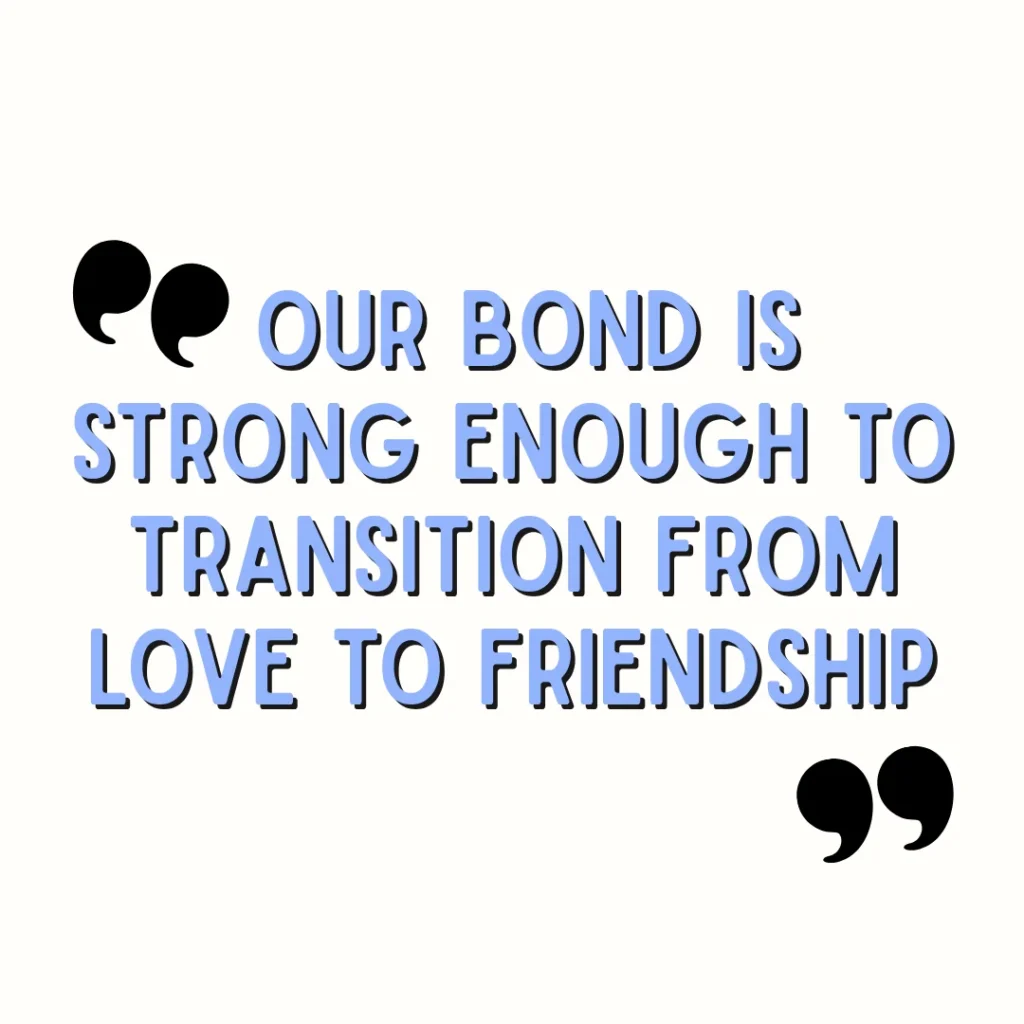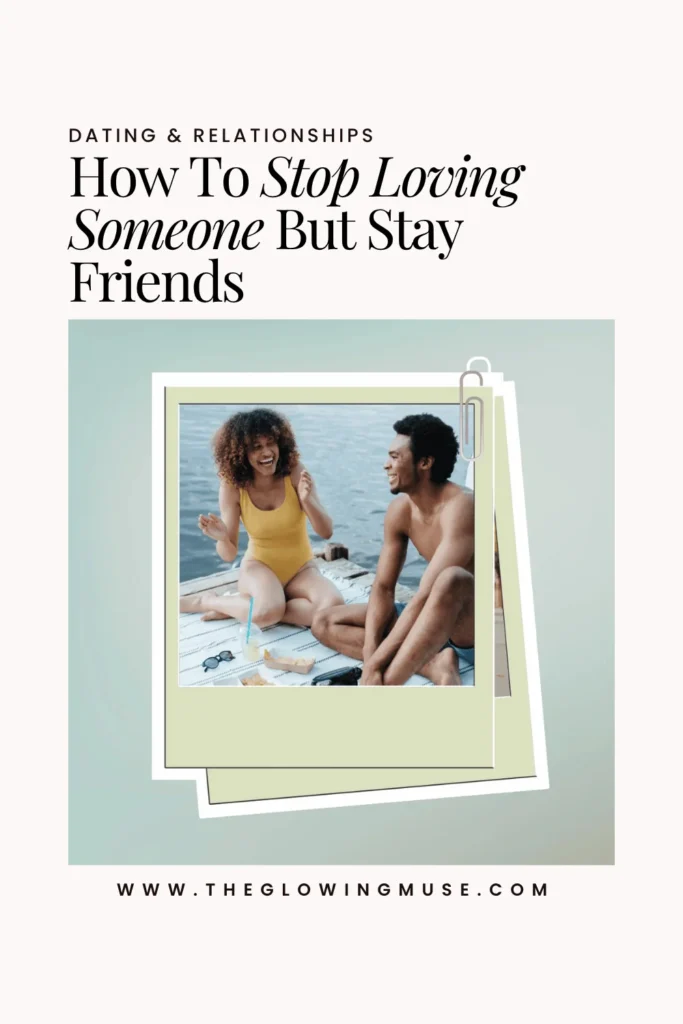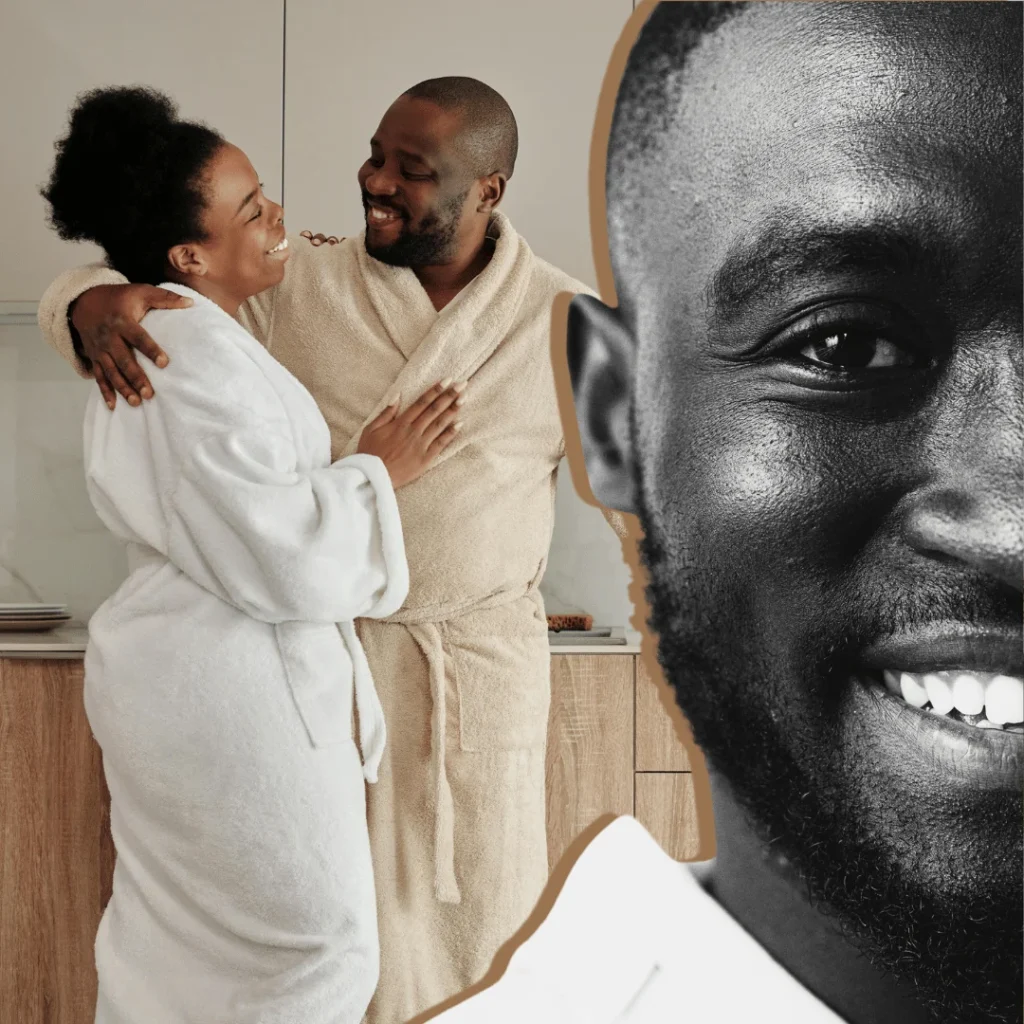Heads up! We may use affiliate links in this post. You'll never pay more, but we might earn a small commission if you buy - thanks for supporting us! See our full disclosure here.
Few things feel more complicated than trying to stay friends with someone you still love.
The end of a romantic relationship rarely comes without tangled emotions, unspoken hopes, and the very human urge to hold onto someone who once felt like home.
And yet—for some people, friendship after love is possible. Not simple, not immediate—but possible.

Achieving it means approaching the situation with care, clarity, and a willingness to let go of the version of the relationship that’s ended.
If you’re in this place—hoping to reshape a connection while protecting your own heart—these thoughtful strategies can help you navigate this tender, often tricky path.
PIN FOR LATER 📌

First, Understand Why You Want To Stay Friends
Before anything else, pause and get clear on your motivations. Why do you want to stay friends with your ex? Answering this honestly is one of the kindest things you can do for both of you.
- Are you hoping to win them back—consciously or not?
- Are you afraid of losing them from your life entirely?
- Or do you truly value who they are outside of your romantic history, and believe a platonic friendship could feel good and healthy for both of you?
This level of self-inquiry isn’t always comfortable, but it matters. If your desire for friendship is rooted in unprocessed feelings or wishful thinking, staying connected too soon can make moving on exponentially harder—for you and for them.

It’s also important to recognise where your ex stands. They may not be ready—or interested—in friendship, and it’s essential to respect that. For friendship to feel genuine, it needs to be mutual.
If you’re both open, an honest conversation is crucial: What kind of friendship do you both envision? What boundaries will protect your healing? Setting expectations early can help you avoid confusion or heartbreak later.
Why Staying Friends Can Be Difficult
Even with the best intentions, staying friends with someone you still have feelings for can stir up a whole spectrum of emotions.
Lingering romantic attachment is one of the biggest challenges. Seeing your ex, hearing about their life—or even imagining them moving on—can trigger waves of jealousy, sadness, or longing.
Beyond that, the friendship itself can serve as a constant reminder of what’s been lost. In some cases, this makes it harder to truly process the end of the relationship.
If this sounds familiar, know that it’s completely normal. Emotions don’t always follow logic, and even the most mature decision can still feel painful.
YOU MIGHT LIKE THIS: 12 Signs Of A Mature & Healthy Relationship
How To Set Healthy Boundaries

Boundaries are essential—not just to protect the friendship, but to safeguard your healing.
Be clear with yourself first:
What kind of communication feels supportive right now? What topics are off-limits? Do you need physical space before you can genuinely engage as friends?
Then, express these boundaries with kindness and clarity. It’s perfectly okay to say:
- “I’m not ready to hear about your dating life yet.”
- “I need some time before we start spending time one-on-one.”
- “I’m not comfortable with late-night texts anymore.”
Likewise, examine your own behaviour. Avoid flirtatious comments or physical touch that could blur lines. Keep your conversations grounded in the present friendship—not the past relationship.
When both people honour these boundaries, it creates the conditions for a healthier, more stable connection.
The Value of Taking Space
Sometimes, the most helpful thing you can do—for yourself and for the potential friendship—is take a break from each other.
This isn’t about punishing or rejecting your ex; it’s about giving yourself the space to grieve, reflect, and gradually untangle your emotional attachment.
Taking space might look like a few weeks or a few months of limited contact. Muting them on social media can also be helpful—sometimes what you don’t see is just as important as what you do.
Be honest when requesting space:
“This isn’t about shutting you out. I care about you and value our connection, but I need time on my own to process everything and move forward in a healthier way.”
Give yourself full permission to honour what you need—without guilt.
When and How to Reconnect

If, after some time and healing, you feel ready to reconnect—start slowly.
Reach out with a simple, pressure-free message. Keep your initial interactions light and platonic. Test how it feels emotionally before diving back into more regular contact.
Be mindful of your expectations: This new friendship may not mirror your old closeness. That’s not a failure—that’s growth.
And if being in contact stirs up painful emotions, give yourself permission to step back again. Healing isn’t linear, and it’s perfectly okay to prioritise your well-being.
Finding Joy Outside the Relationship
One of the most powerful ways to move forward is by intentionally nurturing your own life—outside of your connection with your ex.
Explore new hobbies. Deepen other friendships. Travel, learn, create, connect.
Not only does this support your healing, it helps you build an identity separate from the relationship—something that’s crucial if a genuine friendship is to thrive.
Bringing new experiences and interests into your life also creates fresh ground for future conversations that aren’t rooted in your romantic past.
Letting Go of Fantasies
To stay friends in a healthy way, you must also release any unspoken hopes that the relationship will be rekindled.
This may sound obvious, but in practice, it can be one of the hardest parts of the process.
Allow yourself to fully grieve the relationship that was. Acknowledge the moments of sadness, longing, or nostalgia as they arise—but don’t cling to them.
Therapy, journaling, meditation, or supportive conversations with friends can be invaluable during this stage.
The more space you create between the fantasy and your current reality, the easier it becomes to approach the friendship from a place of genuine clarity and peace.
Navigating Jealousy & Difficult Emotions
Even in the healthiest post-breakup friendships, challenging emotions will arise—especially when one of you starts seeing someone new.
If jealousy flares up, first validate your own feelings. It’s normal. But don’t let those emotions drive your actions.
Talk to a trusted friend or therapist, rather than to your ex, about what you’re feeling. This protects the friendship from becoming emotionally entangled again.
And remember: It’s okay to step back temporarily if new dynamics feel too triggering. Protecting your peace is not selfish—it’s wise.
When Staying Friends Isn’t the Right Choice
As much as we might wish otherwise, not every post-breakup friendship is healthy—or even possible.
If the relationship was toxic, emotionally abusive, or deeply unbalanced, attempting to maintain contact can prolong harm rather than healing.
Similarly, if either of you harbours unresolved romantic hopes, trying to force a friendship can keep you stuck in an unhealthy loop.
Choosing to walk away fully is sometimes the most loving decision you can make—for yourself and for your future.
TRY THIS NEXT: 60 Empowering Journal Prompts For Healing
Final Thoughts
Learning how to stop loving someone while staying friends is an act of courage—and self-compassion. It asks you to hold space for grief, practice radical honesty, and prioritise your healing even when your heart is conflicted.
Some friendships will flourish in this new chapter. Others will fade—and that too is okay!
Give yourself permission to move forward at your own pace. Honour your needs. Trust the wisdom of your own heart.
And remember: Sometimes letting go for good is what allows the deepest kind of peace to take root.











